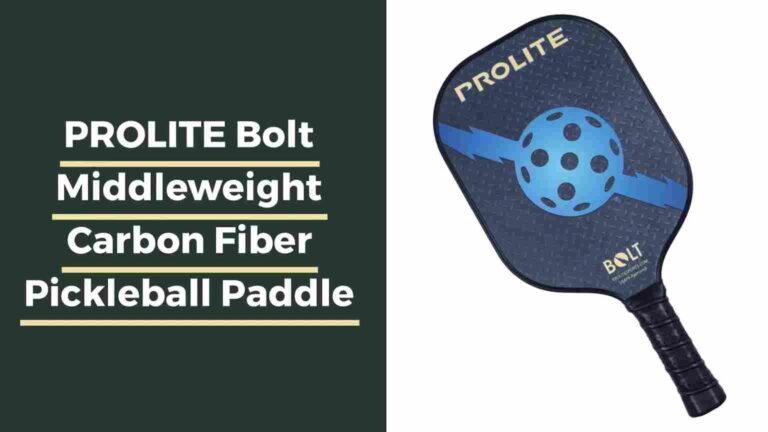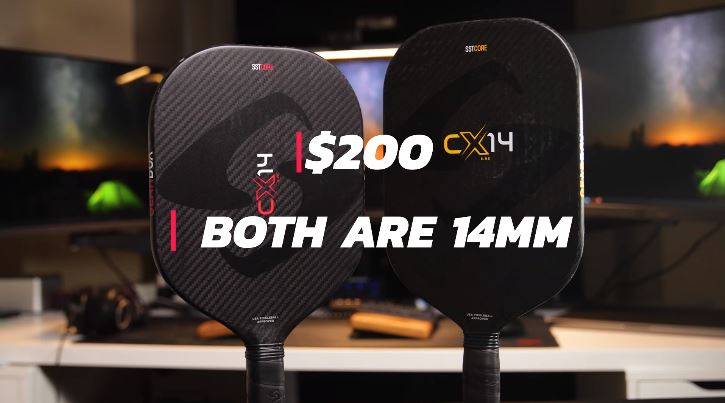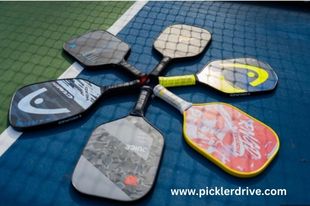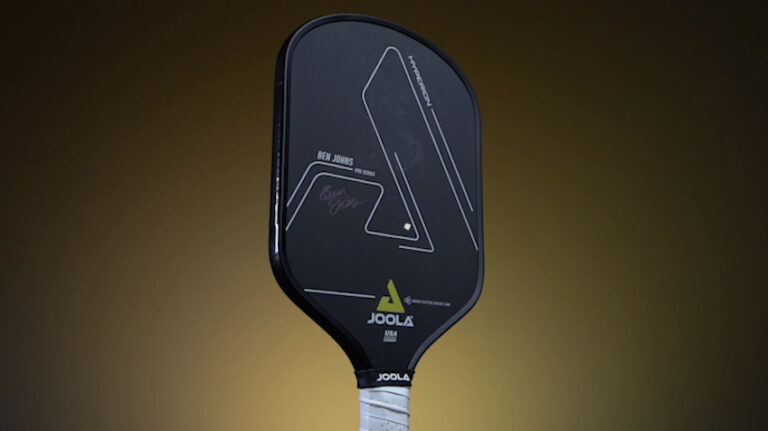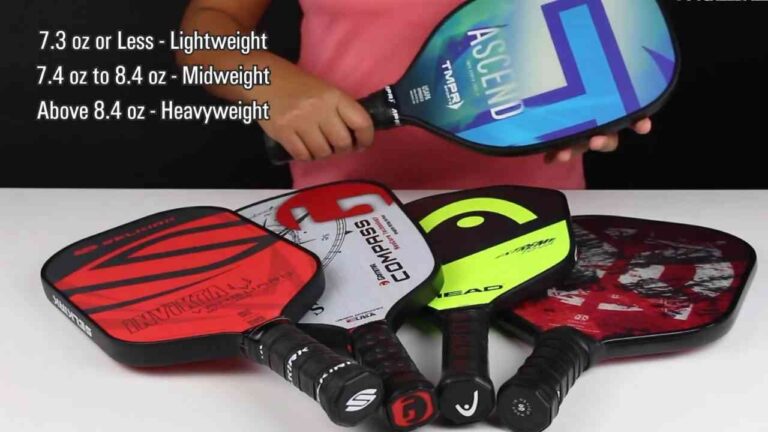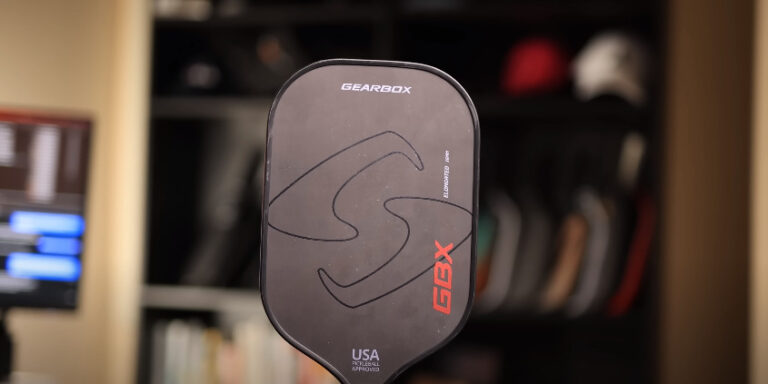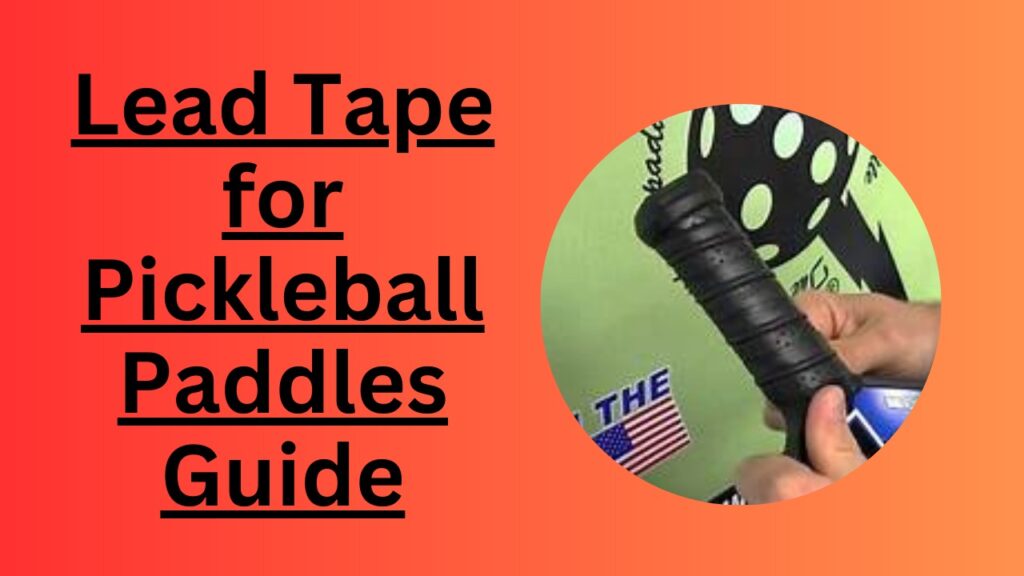
When it comes to customizing your pickleball paddle’s performance, lead tape emerges as a versatile tool.
By strategically placing lead tape, you can fine-tune the weight, balance, and overall feel of your paddle, enhancing your gameplay to match your unique style.
In this guide, we delve into the art of lead tape placement, considering factors such as power, control, and maneuverability, while incorporating essential insights and practical tips.
Understanding Lead Tape and its Benefits
Before delving into the specifics of lead tape placement, it’s crucial to grasp its significance.
Lead tape is a flexible adhesive material infused with small lead particles, designed to alter the weight distribution of your pickleball paddle.
By adding or adjusting lead tape, players can achieve specific outcomes, such as increased power for forceful shots, better control for precision, and improved maneuverability for agile play.
Where to put lead tape on pickleball paddles
If you’re looking to fine-tune your pickleball paddle’s performance, adding lead tape strategically can be the game-changer you’re seeking. Here’s a breakdown of the best ways to apply lead tape for optimal results:
Zone 1 – Top of the Paddle (Power with Trade-offs)
- Adding weight to the top of your paddle amplifies power in your shots.
- Keep in mind that this may lead to a reduction in hand speed due to the added weight.
Zone 2 – Middle of the Paddle (Balanced Stability)
- Placing weight in the middle of the paddle provides a balanced effect on both power and hand speed.
- This zone enhances stability, preventing unwanted paddle rotation upon ball contact.
- As a result, the sweet spot can feel larger, boosting shot consistency.
Zone 3 – Bottom of the Paddle (Stability and Expanded Sweet Spot)
- Applying weight in zone 3 minimally affects hand speed compared to other zones.
- It offers increased stability and further extends the sweet spot.
Zone 4 – Trial and Adjustment
As you experiment with lead tape placement, remember that trial and error is key. Start with small amounts of tape and test your paddle’s performance after each adjustment.
Pay attention to how the changes impact your shots, power, and control. Over time, you’ll discover the precise lead tape configuration that aligns with your playing style and preferences.
Why Consider Adding Lead Tape?
Experimenting with paddle weights goes beyond boosting power and stability. Here are additional benefits to ponder:
More Spin: A heavier paddle facilitates extra spin, granting you better control over shot trajectory.
Improved Consistency: A stable, balanced paddle might enhance shot consistency during rallies.
Boosted Confidence: Customizing your paddle builds confidence on the court, elevating your gameplay.
Enhanced Durability: Lead tape can bolster paddle durability, guarding against wear and tear.
Reduced Vibration: Additional weight minimizes vibration, offering comfort for prolonged play.
Insights from Pro Players
Pickleball pros are no strangers to the impact of lead tape:
- Brodie Smith: “Lead tape has changed my game dramatically. I added lead tape to Zone 3, slightly reducing hand speed but enhancing sweet spot and control.”
- Simone Jardim: “I fine-tune weight and balance with lead tape. Extra weight in the head amplifies power and control.”
- Lucy Kovalova: “Lead tape transforms paddle feel and performance. It adds power and stability to shots.”
- Ben Johns: “Using lead tape is a savvy move. It brings extra weight and balance, perfect for potent shots.”
Incorporating lead tape to your pickleball paddle is an opportunity to tailor your gear to your unique style and preferences. As these professionals attest, the benefits extend beyond power, influencing control, stability, and shot finesse. Begin with small adjustments, experiment, and unlock the potential of lead tape to elevate your pickleball prowess.
Factors to Consider Before Applying Lead Tape
Customizing your pickleball paddle with lead tape is a strategic process that requires careful consideration. Before you begin, ponder these key factors:
- Playing Style: Reflect on your preferred playing style. Are you an aggressive hitter seeking more power, or a finesse player aiming for precise control?
- Strengths and Weaknesses: Identify your strengths and weaknesses on the court. Lead tape can be used to enhance your strong points or mitigate areas that need improvement.
- Incremental Changes: Remember that small adjustments can yield significant results. Experiment with adding lead tape in small increments to avoid drastic changes that might disrupt your gameplay.
Choosing the Right Type of Lead Tape
When selecting lead tape, two primary options exist: adhesive-backed and non-adhesive. Each type offers distinct advantages and considerations:
- Adhesive-Backed Lead Tape: This type of tape comes with a sticky side that adheres directly to the paddle’s surface. It’s easy to apply and provides a secure hold.
- Non-Adhesive Lead Tape: Non-adhesive tape is versatile and can be wrapped around the paddle’s handle or other areas without leaving residue. It offers flexibility in placement.
Recommended Tools and Materials
To embark on your lead tape customization journey, gather the following tools and materials:
- Scissors: For precise cutting of lead tape.
- Rubbing Alcohol: To clean the paddle’s surface before applying adhesive-backed tape.
- Ruler: To measure and ensure accurate placement.
- Lead Tape: Adhesive-backed or non-adhesive, depending on your preference.
People also ask
By understanding how to effectively use lead tape, grip tape, and other customization options, you can tailor your pickleball paddle to suit your playing style and preferences, ultimately enhancing your performance on the court.
Conclusion
In the dynamic world of pickleball, lead tape emerges as a powerful tool for personalizing your paddle’s performance.
By understanding the nuances of lead tape placement and considering factors like playing style, strengths, and weaknesses, you can tailor your paddle to optimize power, control, and maneuverability.
As you embark on your lead tape customization journey, remember that small adjustments can lead to significant enhancements, ultimately transforming your pickleball experience on the court.
Disclaimer: The information provided in this guide is for informational purposes only. Players are encouraged to experiment responsibly and consult with experienced players or professionals for personalized advice.

